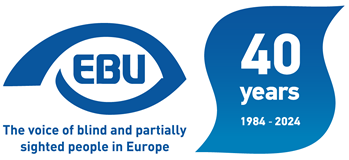We responded to the European Commission’s public consultation for the three-year evaluation of seven EU executive agencies, including EACEA, the agency that manages the Creative Europe programme, to reiterate the message contained in our statement of July 2022: “Creative Europe 2021-2027: where are the incentives for audio description and subtitling in MEDIA funding to the film industry?”, where we ask the Commission to use the opportunity of the mid-term review of the Creative Europe regulation 2021-2027, to consider introducing some benchmarking in the regulation on how MEDIA funding is used to promote inclusion, and in particular audio description and audio subtitling.
We were interviewed by Visionary Analytics, who are carrying out a study for the European Commission to support the evaluation of the EU legal framework for the implementation of the Marrakesh Treaty. We circulated to our members in the EU, for information and wider distribution, the Commission’s call for evidence (deadline 11 May) on the same matter. The proper public consultation, in the form of a questionnaire, is expected in May-June, and the evaluation report at the end of this year.
On 11 April, we spoke at the European Disability Forum webinar on the implementation of the Audio Visual Media Services Directive. We highlighted some gaps and resulting shortcomings in the implementation of the Directive as far as Article 7 on accessibility is concerned. It was very worrying to hear the presentation of the European audio-visual regulator’s report of 2021, which shows that “gradual improvement through proportionate measures” is interpreted very diversely by EU Member States, often far from the spirit of the Directive.
On 25 April, we spoke at the webinar on road safety for all, organised by VIAS Institute (Belgium), an independent knowledge centre acting in the framework of the European Road Safety Charter. This provided another opportunity, after the meeting last month of the European Commission’s DG MOVE High Level Group of Experts on Road safety, to present our related concerns: silent vehicles and AVAS, driverless vehicles, shared spaces (‘mixed traffic areas’), and the new forms of urban mobility. The European Road Safety Charter, led by the European Commission, is the largest civil society platform on road safety.
The deadline for feedback from our member organisations on the draft EBU document “Guidance on reasonable accommodation for visually impaired employees and applicants” was extended to 30 May. At this point, we will be able to draw also from the draft guide on reasonable accommodation that the European Commission is scheduled to present to the EU Disability Platform’s subgroup on the Disability Employment Package on 11 May. Our attendance of the presentation, on 27 April, by the European Disability Forum of its Annual Human Rights Report, focusing on employment and the right to work for persons with disabilities in the EU—including the right to reasonable accommodation at work—is also likely provide inspiration.
We continued to collect input from our members for our response to the ongoing public consultation by the European Commission on the future European Disability Card (deadline: 5 May).
On 26 April, we will follow with interest the European Parliament’s Interparliamentary Committee Meeting on Reform of the European Electoral System, to monitor progress toward a new EU electoral law that takes into account the needs of visually impaired voters and candidates.
Through our representative in their Accessibility Working Group, we provided feedback to ANEC—the European consumers’ voice in standardisation—as coordinators of their campaign regarding the draft ‘Keep Me Posted’ EU Digital transition legislation, as it threatens offline rights. While supporting the message that it should remain a choice for people to receive communications in digital or paper format, we stressed that it is not a fair representation to suggest that the digital format is necessarily detrimental to the inclusion of visually impaired people; on the contrary, it can be a factor of progress if accessibility is ensured.
We were invited by the Party of European Socialists to participate in their Civil Society Consultations in the run-up for the European Parliament elections 2024. We are asked to present up to 3 key priorities and 10 other measures to promote (deadline 9 June). The preparation of our response coincides with our starting to prepare the EBU statement for the elections. We have also provided our comments to EDF on their draft manifesto for the European elections, to be adopted by the 5th “European Parliament of Persons with Disabilities” event on 23 May, where the EBU governance will be represented within various national delegations.

